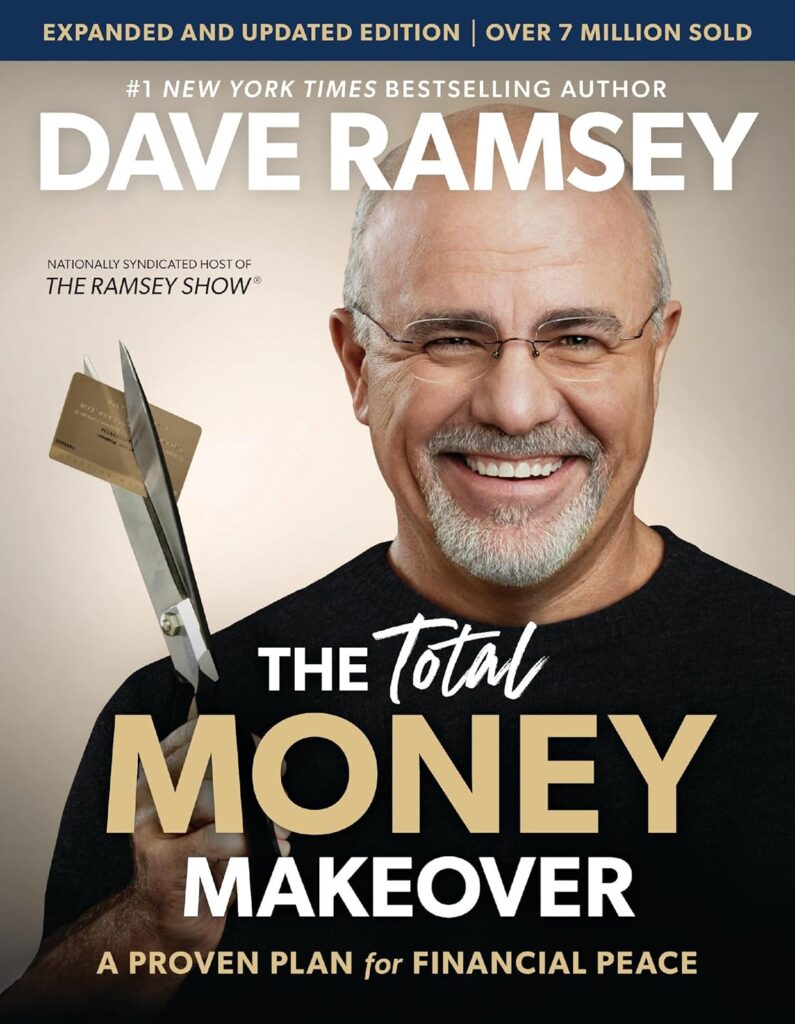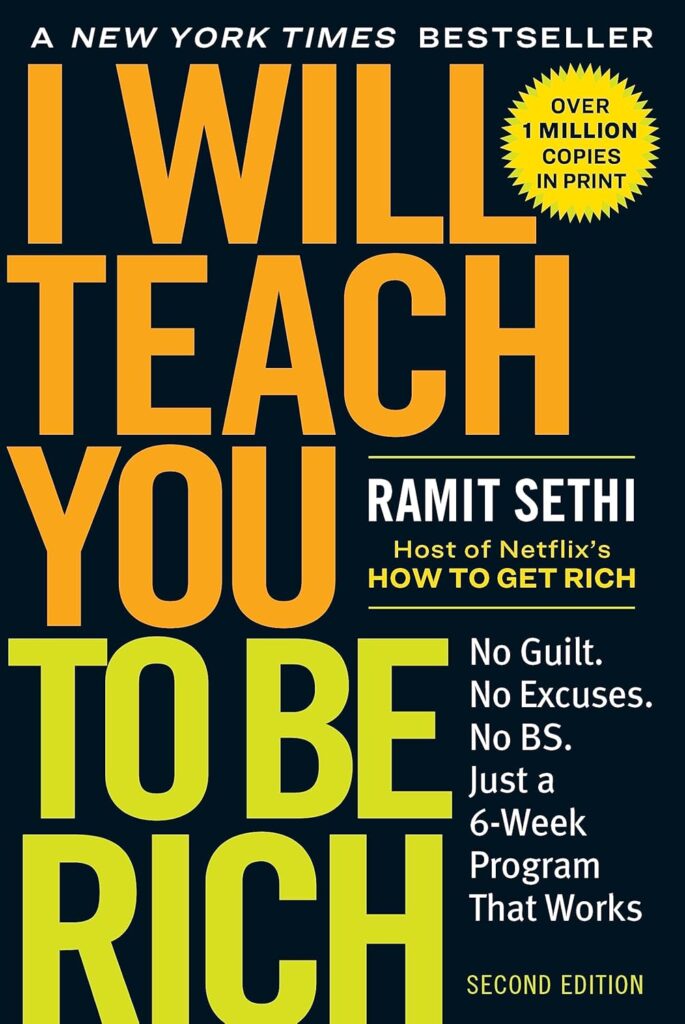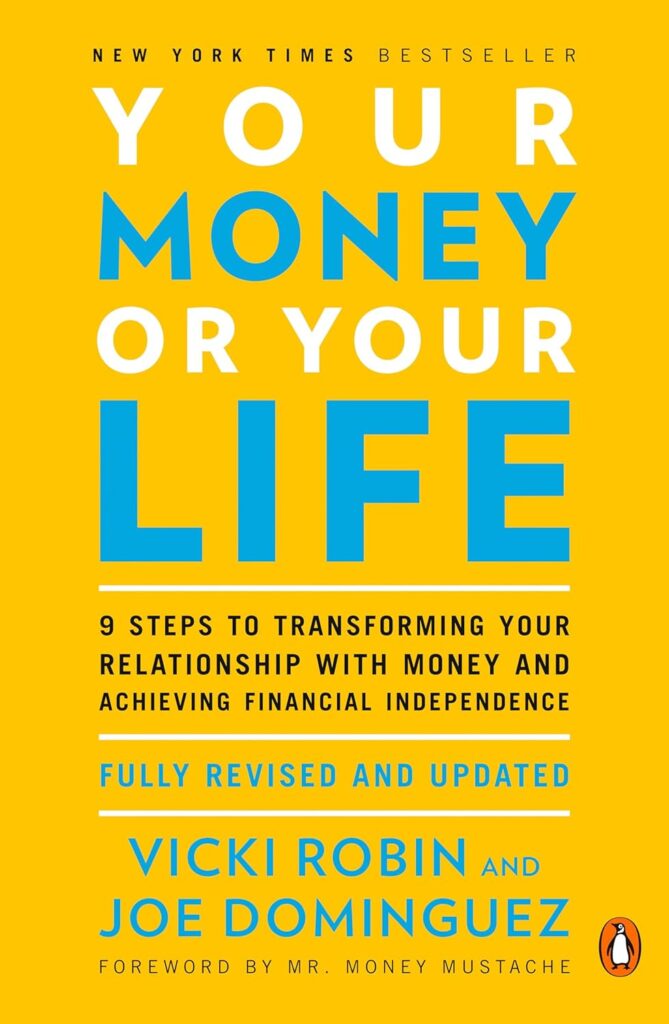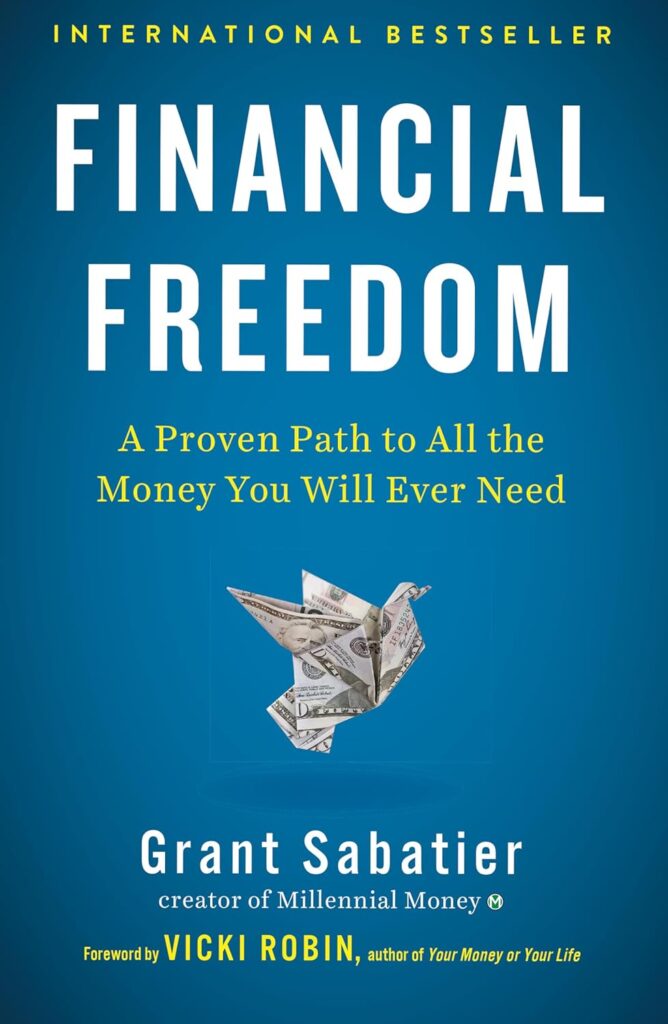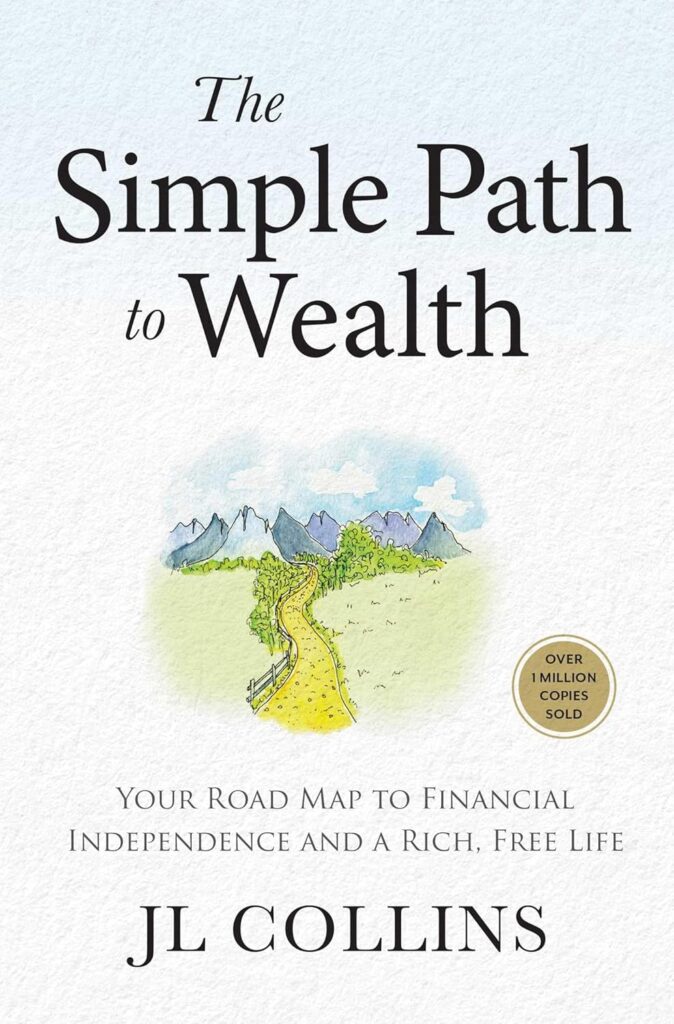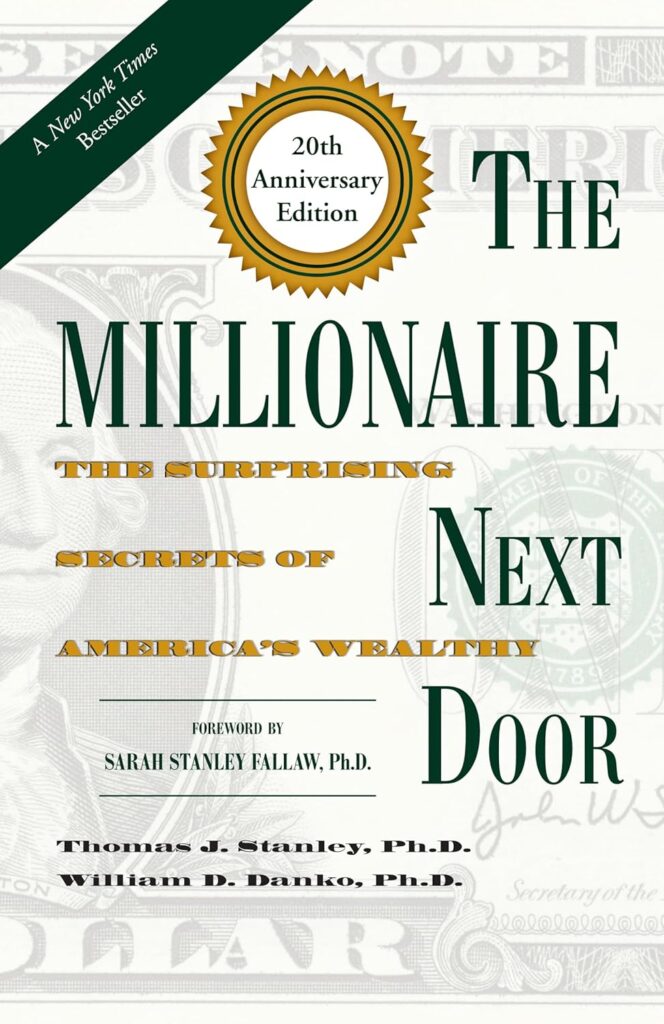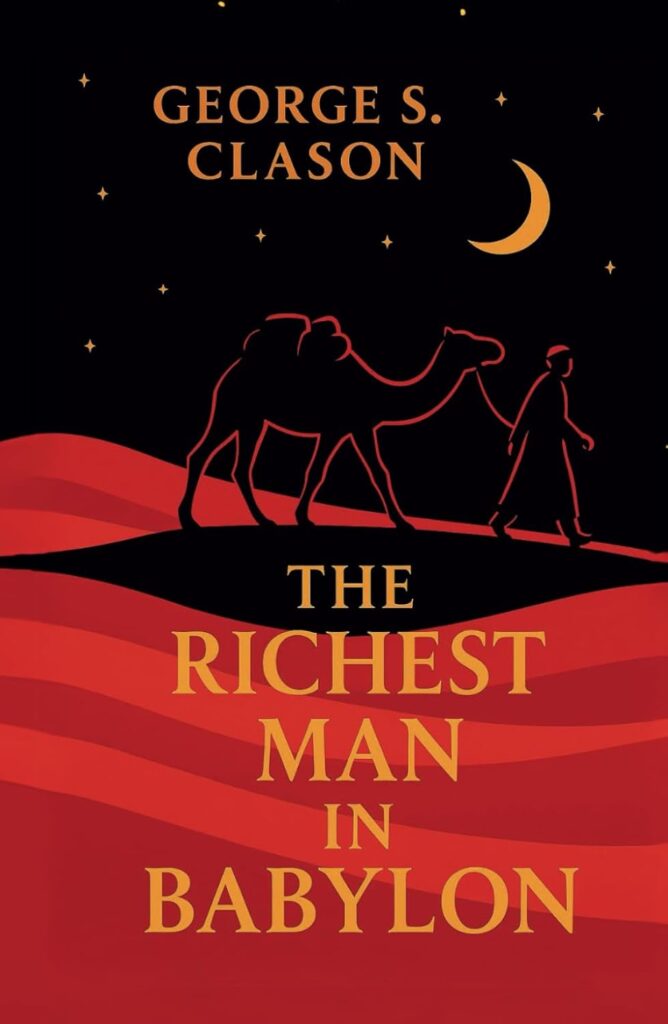Get a free notion reading tracker
Personal Finance Books to Read in Your 20s That’ll Set You Up for Life
Your 20s are the perfect time to get your finances in order — even if you don’t feel “ready.” Nobody teaches you this stuff in school, so you’re left Googling how to budget while eating instant noodles at 11 PM. If that sounds familiar, you’re not alone — and luckily, these books are here to help.
These books will help you build a strong financial foundation, shift your mindset, and start making smarter money moves.
Each one offers a different perspective on money, from how to stop living paycheck to paycheck to how to actually build long-term wealth.
Best Finance Books to Read in Your 20s
1. The Total Money Makeover by Dave Ramsey
This book is a straight-shooting guide to getting your financial life in order.
Dave Ramsey breaks down his signature “baby steps” approach to help you pay off debt, save for emergencies, and finally stop stressing over money.
The Total Money Makeover Updated and Expanded” is a personal finance book by Dave Ramsey, aimed at helping readers transform their relationship with money and achieve financial peace. The book offers a proven plan for getting out of debt, saving, and investing for the future. It introduces the debt snowball method for paying off debt and emphasizes the importance of breaking bad money habits and making lasting changes.
The book also addresses common money myths and provides guidance on setting aside money for emergencies and retirement. Additionally, it includes new content to help readers tackle marriage conflict and college debt. With practical advice and inspirational stories, the book aims to empower readers to live like no one else so they can eventually live and give like no one else.
2. I Will Teach You To Be Rich by Ramit Sethi
This isn’t your typical boring finance book.
Ramit Sethi brings humor, practicality, and zero guilt into the conversation, walking you through a six-week program to automate your finances, invest smartly, and enjoy your money without stressing every penny.
After reading “I Will Teach You to Be Rich,” I found it to be a practical and straightforward guide to personal finance. The book offers a 6-week program designed to help readers manage their money more effectively. It covers a wide range of topics, including budgeting, saving, investing, and spending guilt-free on things you love.
One of the key takeaways is the emphasis on automating finances to ensure that money goes exactly where it’s supposed to. The author, Ramit Sethi, provides actionable steps at the end of each chapter, making it easy to transition from knowing to doing.
The book also talk about the psychology of money, helping readers understand their financial behaviors and make better decisions. It offers advice on crushing debt, setting up high-interest bank accounts, and negotiating raises. Additionally, it includes new tools and insights in this revised edition, making it relevant for today’s readers.
Overall, “I Will Teach You to Be Rich” is a comprehensive resource for anyone looking to improve their financial situation and live a richer life.
3. Your Money or Your Life by Vicki Robin & Joe Dominguez
Based on my experience and what I’ve seen in customer reviews, Your Money or Your Life: 9 Steps to Transforming Your Relationship with Money and Achieving Financial Independence is a valuable and eye-opening read when it comes to personal finance. I found its advice on changing how I think about money—and aiming for financial independence—both practical and surprisingly approachable. Some parts even felt fun to read, which I didn’t expect from a finance book.
That said, I did notice it had a slightly preachy tone at times, and certain sections felt repetitive, which made parts of it drag a little. I also felt that a few suggestions seemed a bit outdated. Still, despite those issues, I’d absolutely recommend it to anyone trying to take control of their finances and rethink their relationship with money. The core insights are genuinely worth it.
4. Financial Freedom by Grant Sabatier
Financial Freedom: A Proven Path to All the Money You Will Ever Need is one of the most practical, approachable guides I’ve read on financial independence. Grant Sabatier doesn’t just throw out generic advice—he dives deep into personal finance, investing, entrepreneurship, and even mindfulness, all while sharing his own journey to financial freedom. It honestly felt like I was getting advice from a very grounded, relatable friend.
If I could go back in time, I’d hand this book to my younger self in my early 20s. I can’t help but think how different things might have been if I had followed even half of his steps back then. For anyone in their 20s or 30s—especially if you’re not thinking about having kids just yet—I’d say read this now. Grant has a way of breaking down the intimidating world of money in a way that’s easy to understand and actually inspiring. I didn’t grow up in a financially savvy household, and my schooling certainly didn’t teach me the basics of money management
What I appreciated most is how Grant shares his story—dead broke to financially free—in a way that’s honest and deeply motivating. He makes you feel like you can do it too. And he demystifies all the confusing jargon (401k, Roth IRA, REITs, and so on) that usually overwhelms people new to this stuff. No, the book doesn’t have all the answers, but it gets you asking the right questions and helps you see what your own path to freedom could look like. It really made me stop and think—what do I want retirement to look like, and how hard am I willing to work to get there faster?
5. The Psychology of Money by Morgan Housel
“The Psychology of Money” by Morgan Housel is a book that explores the complex relationship between human behavior and financial decisions.
The book emphasizes that doing well with money isn’t just about what you know, but also about how you behave. It highlights that financial decisions are often influenced by personal history, individual perspectives, ego, pride, marketing, and odd incentives.
-The book discusses the unpredictability of financial markets and the need for a long-term perspective when investing. It also delves into the power of compounding, stressing the benefits of long-term thinking and patient investing.
Overall, “The Psychology of Money” offers a unique perspective on personal finance, investing, and business decisions, making it a valuable read for anyone looking to improve their financial literacy.
6. The Simple Path to Wealth by JL Collins
It’s perfect for beginners, but even as someone with some experience in investing, I found it incredibly grounding—especially if you’re done chasing the illusion of short-term investment miracles.
What stood out most to me was his boldness. He doesn’t sugarcoat things—he takes a clear stand for low-cost indexing and isn’t afraid to push back against the noise: day traders, hedge fund managers, timing strategies, and anyone who promises big wins through speculation. I’ve seen too many people fall for those flashy ideas, only to lose money and confidence.
What Collins does so well is give new investors the tools to build a simple, solid portfolio—and, just as importantly, the mindset to stay the course. He helps you tune out the media’s constant stream of “hot tips” and financial fear-mongering.
7. The Millionaire Next Door by Thomas J. Stanley & William D. Danko
Surprise: most millionaires aren’t living in mansions or driving sports cars. This book shows that wealth often looks a lot quieter than you’d think. It explores the habits and choices of people who quietly build wealth and how you can do the same.
This book was such an easy and enjoyable read. Straight to the point and surprisingly funny. I caught myself laughing and chuckling more times than I expected. What really hit me, though, was how much of it made sense of things I’ve been observing for years. The authors nailed it. They speak truths that a lot of people probably aren’t ready or willing to accept.
8. The Richest Man in Babylon by George S. Clason
This one’s told in ancient parables — but don’t let that throw you off. It’s packed with simple, timeless lessons about saving, investing, and building wealth. It’s short, powerful, and easy to remember, even years after reading it.
I loved the fable-style storytelling. It made the financial lessons feel accessible, even fun. That format helped me absorb the ideas more easily and made me reflect more deeply, too.
The “5 Laws of Gold” and “7 Cures for a Lean Purse” are straightforward but powerful. They’re not complicated; they just take consistency and discipline. And honestly, one of the biggest mindset shifts for me came from the simple idea of always pay yourself first. That single principle has changed my financial life.
9. Broke Millennial by Erin Lowry
Written specifically for millennials and Gen Z, this book makes financial literacy feel way less scary.
Erin Lowry covers everything from budgeting to negotiating bills and investing — all in a voice that feels like talking to your older sister who’s got it together.
I found this book to be incredibly informative and surprisingly easy to get through. It’s well-written and packed with practical advice—some of which really caught me off guard.
One of the most helpful takeaways for me was the insight on renting—it challenged the idea that renting is always “throwing money away.” And the bit about financial advisors? If yours is taking more than 2% of your income, they might not be the deal you think they are.
If you’re like me and never got a proper education on how credit, renting, or financial planning actually works, you need to read this. It breaks down complex topics in a way that’s accessible, smart, and kind of empowering. Whether you’re just starting out or looking to clean up your financial habits, this book is a great place to start.
Final Thoughts
Getting good with money doesn’t mean you have to stop having fun — it just means you’re taking control. Your 20s are the best time to start, because the habits you build now can seriously pay off later. Even if you read just one or two of these books, you’ll be miles ahead of where you started.
And honestly? Your future self will be so glad you did.

